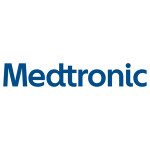Medtronic (NYSE:MDT) said today its In.Pact admiral drug eluting balloon won CE Mark approval in the European Union for arteriovenous access to help maintain hemodialysis access in patients with end-stage renal disease.
The device is now cleared for preventing restenosis in hemodialysis access sites by opening up the artery and delivering paclitaxel to the vessel wall. A 40 cm catheter shaft will also be made available alongside the expanded indication for the device.
“For patients with hemodialysis, maintaining AV access is their lifeline to receiving the care they need to filter waste from their system. In the past, when the access site became stenosed, the only option was the use of a standard percutaneous transluminal angioplasty, which can result in the need for repeat procedures. The In.Pact Admiral DEB, in my experience, provides a safe and more effective way of managing AV access by preventing vascular restenosis, improving patency of dialysis fistulas and grafts, and reducing the need of repeat PTA procedures,” Dr. Konstantinos Katsanos of London’s St. Thomas’ Hospital said in a press release.
The In.Pact Admiral DCB received its initial CE Mark approval in the European Union in 2009 for treating peripheral artery disease, and won FDA approval in 2014 with indications for treating superficial femoral and popliteal arteries.
“In.Pact Admiral DEB, a best-in-class therapy for the treatment of superficial femoral artery disease, is now indicated in Europe for the treatment of AV access, providing a durable primary intervention that aids in extending time to re-intervention while preserving future treatment options. Improving lives and alleviating pain is a core piece of Medtronic’s mission, and through In.Pact Admiral DEB, we can help physicians treat patients with end-stage renal disease,” peripheral biz veep Brian Verrier said in a press release.
Last November, Fridley, Minn.-based Medtronic touted data from a pair of studies of its In.Pact Admiral drug-coated balloon, presented at the annual Vascular Interventional Advances conference in Las Vegas.
Researchers revealed the formal cost-effectiveness analysis of the U.S. cohort of Medtronic’s In.Pact SFA trial, and in-stent restenosis cohort data from its In.Pact Global study.


